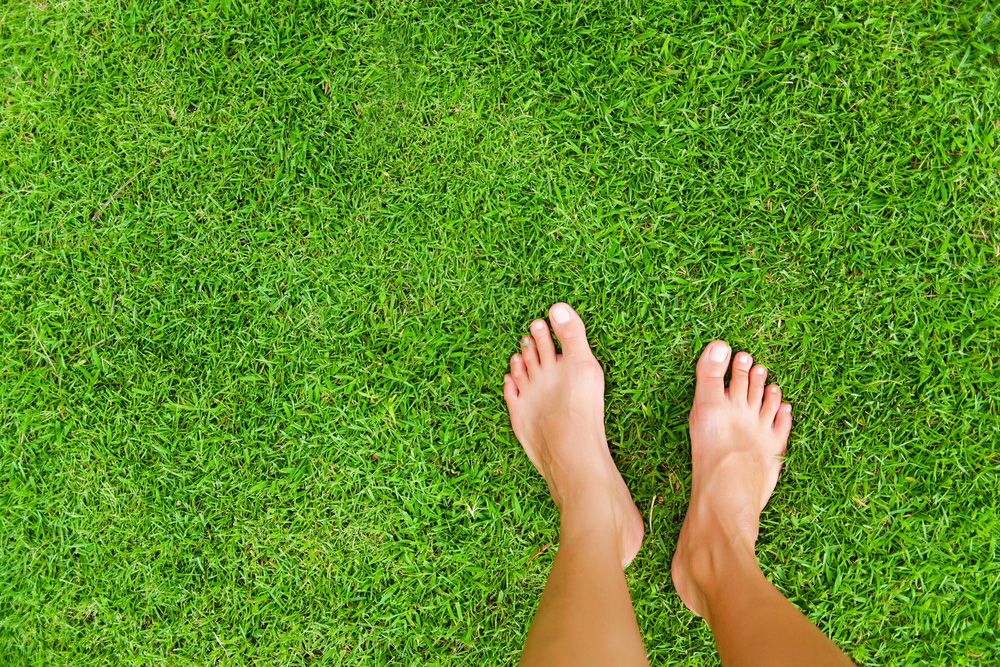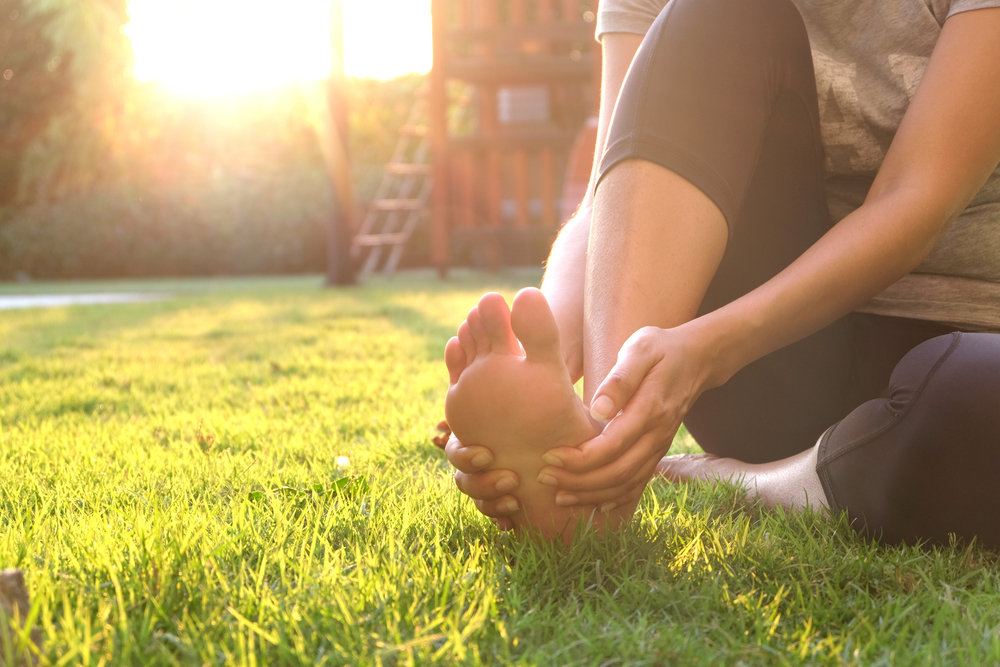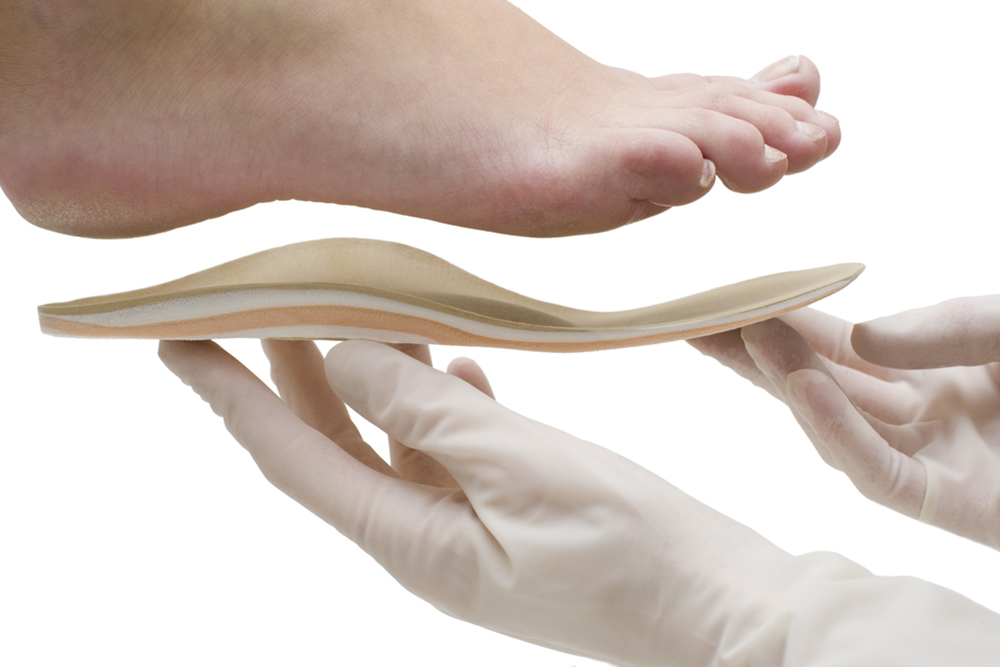 Tarsal tunnel syndrome can be particularly bothersome to runners. This condition occurs in an individual when a nerve called the posterior tibial nerve becomes compressed. As a result of this compression, an individual might feel pain or tingling sensations. Runners exert a lot of pressure on their feet; therefore, this condition can be quite bothersome to these athletes. Although recommended treatment options will vary from runner to runner, sometimes wearing orthotics may help. Another potential remedy might be strengthening and improving the flexibility of the feet. Sometimes, overpronation might be the culprit for a case of tarsal tunnel syndrome, so carefully monitoring one’s running style might also be of use. Contact a podiatrist today for more information.
Tarsal tunnel syndrome can be particularly bothersome to runners. This condition occurs in an individual when a nerve called the posterior tibial nerve becomes compressed. As a result of this compression, an individual might feel pain or tingling sensations. Runners exert a lot of pressure on their feet; therefore, this condition can be quite bothersome to these athletes. Although recommended treatment options will vary from runner to runner, sometimes wearing orthotics may help. Another potential remedy might be strengthening and improving the flexibility of the feet. Sometimes, overpronation might be the culprit for a case of tarsal tunnel syndrome, so carefully monitoring one’s running style might also be of use. Contact a podiatrist today for more information.
Tarsal tunnel syndrome can be very uncomfortable to live with. If you are experiencing tarsal tunnel syndrome, contact Brent Harwood, DPM from Southeast Podiatry. Our doctor can provide the care you need to keep you pain-free and on your feet.
Tarsal Tunnel Syndrome
Tarsal tunnel syndrome, which can also be called tibial nerve dysfunction, is an uncommon condition of misfiring peripheral nerves in the foot. The tibial nerve is the peripheral nerve in the leg responsible for the sensation and movement of the foot and calf muscles. In tarsal tunnel syndrome, the tibial nerve is damaged, causing problems with movement and feeling in the foot of the affected leg.
Common Cause of Tarsal Tunnel Syndrome
The Effects of Tarsal Tunnel Syndrome
A physical exam of the leg can help identify the presence of tarsal tunnel syndrome. Medical tests, such as a nerve biopsy, are also used to diagnose the condition. Patients may receive physical therapy and prescriptive medication. In extreme cases, some may require surgery.
If you have any questions please feel free to contact our offices located in Fairhope, Brewton, and Atmore, AL. We offer the newest diagnostic and treatment technologies for all your podiatric needs.
 Feet can be barometers for health problems that occur in the body. The feet are often neglected, especially when there is no pain. However, major changes in foot comfort can be an indication of a larger health issue going on. Problems you can have with your feet include foot cramping, a sore or abscess that will not heal, or constantly cold feet. Foot cramping is when a muscle in the foot suddenly squeezes and cannot relax properly. This can signal dehydration, nerve and circulation problems, or neurological disease. An abscess that will not heal can be the result of diabetes or peripheral artery disease and if not treated, can become infected and gangrenous. Feet that feel cold even after putting on warm socks can be due to poor blood circulation, which can be associated with cardiovascular disease, high blood pressure, hypothyroidism, or anemia. There are many other health problems that can cause foot pain. If you are experiencing discomfort with your feet, consult with a podiatrist who can help you with a proper diagnosis.
Feet can be barometers for health problems that occur in the body. The feet are often neglected, especially when there is no pain. However, major changes in foot comfort can be an indication of a larger health issue going on. Problems you can have with your feet include foot cramping, a sore or abscess that will not heal, or constantly cold feet. Foot cramping is when a muscle in the foot suddenly squeezes and cannot relax properly. This can signal dehydration, nerve and circulation problems, or neurological disease. An abscess that will not heal can be the result of diabetes or peripheral artery disease and if not treated, can become infected and gangrenous. Feet that feel cold even after putting on warm socks can be due to poor blood circulation, which can be associated with cardiovascular disease, high blood pressure, hypothyroidism, or anemia. There are many other health problems that can cause foot pain. If you are experiencing discomfort with your feet, consult with a podiatrist who can help you with a proper diagnosis.
Foot Pain
Foot pain can be extremely painful and debilitating. If you have foot pain, consult with Brent Harwood, DPM from Southeast Podiatry. Our doctor will assess your condition and provide you with quality treatment.
Causes
Foot pain is a very broad condition that could be caused by one or more ailments. The most common include:
Diagnosis
To figure out the cause of foot pain, podiatrists utilize several different methods. This can range from simple visual inspections and sensation tests to X-rays and MRI scans. Prior medical history, family medical history, and any recent physical traumatic events will all be taken into consideration for a proper diagnosis.
Treatment
Treatment depends upon the cause of the foot pain. Whether it is resting, staying off the foot, or having surgery; podiatrists have a number of treatment options available for foot pain.
If you have any questions please feel free to contact our offices located in Fairhope, Brewton, and Atmore, AL. We offer the newest diagnostic and treatment technologies for all your podiatric needs.
 Many beginning runners make mistakes that can cause injuries. Here are a few tips to prevent that from happening. Start with getting running shoes that are right for your feet, which includes evaluating your running style and foot type. It is recommended to replace shoes after about 350 miles, and to alternate with an extra pair when you are halfway through the lifespan of your first pair of shoes. Second, try to avoid doing too much, too soon. Experts agree that the easiest way to get injured is by running too far, for too long, too fast, and too often. It is advised to increase mileage by a maximum of 10 percent a week. It is also recommended to combine walking and running, at first, as well as taking at least one day off between runs. One of the most common causes of injury in beginners is overstriding, which consists of landing heel first with your foot ahead of the body’s center of gravity. Instead, try landing midsole, with the body’s weight directly over the foot. If you need further guidance about gait and foot type, or are having problems with your feet after running, please consult with a podiatrist.
Many beginning runners make mistakes that can cause injuries. Here are a few tips to prevent that from happening. Start with getting running shoes that are right for your feet, which includes evaluating your running style and foot type. It is recommended to replace shoes after about 350 miles, and to alternate with an extra pair when you are halfway through the lifespan of your first pair of shoes. Second, try to avoid doing too much, too soon. Experts agree that the easiest way to get injured is by running too far, for too long, too fast, and too often. It is advised to increase mileage by a maximum of 10 percent a week. It is also recommended to combine walking and running, at first, as well as taking at least one day off between runs. One of the most common causes of injury in beginners is overstriding, which consists of landing heel first with your foot ahead of the body’s center of gravity. Instead, try landing midsole, with the body’s weight directly over the foot. If you need further guidance about gait and foot type, or are having problems with your feet after running, please consult with a podiatrist.
Exercising your feet regularly with the proper foot wear is a great way to prevent injuries. If you have any concerns about your feet, contact Brent Harwood, DPM from Southeast Podiatry. Our doctor will treat your podiatric needs.
How to Prevent Running Injuries
Many common running injuries are caused by overuse and overtraining. When the back of the kneecap starts wearing out and starts causing pain in your knee, this is commonly referred to as runner’s knee. Runner’s knee is a decrease in strength in your quadriceps and can occur if you’re not wearing properly fitted or supporting shoes. To prevent runner’s knee, focusing on hip strengthening is a good idea, as well as strengthening your quads to keep the kneecaps aligned.
What Are Some Causes of Running Injuries?
- One cause of a common running injury is called iliotibial band syndrome.
- Plantar fasciitis is also another common injury.
- Stress fractures can occur from overtraining, lack of calcium, or even your running style.
Best Ways to Prevent Running Injuries
- Wear footwear that fits properly and suits your running needs.
- Running shoes are the only protective gear that runners have to safeguard them from injury.
- Make a training schedule. Adding strengthening exercises as well as regular stretching can help keep you strong and limber and can lessen the possibility of injuries.
- Stretching keeps muscles limber; this will help you gain better flexibility.
If you have any questions please feel free to contact our offices located in Fairhope, Brewton, and Atmore, AL. We offer the newest diagnostic and treatment technologies for all your podiatric needs.
 Experiencing painful sensations in the feet can prove to be a big annoyance and something that might hinder your normal activities. For this reason, it is important to be aware of the many different types of pain you could experience—toe pain is one important kind. Toe pain has a variety of causes. One of the most common sources of toe pain is simply wearing ill-fitting footwear that is too tight around the toes. If you notice pain, swelling, and discoloration in one particular toe, this pain may be caused by a broken toe. Alternatively, if you are experiencing pain around the toenail (particularly at the sides of the nail), it is possible that this is due to an ingrown toenail. Lastly, if you have some kind of pain around the joint of a toe, and the skin around this area has become red in color or hot in temperature, this could be caused by gout. If you are unsure what is causing your toe pain, a podiatrist can help you identify and treat the problem.
Experiencing painful sensations in the feet can prove to be a big annoyance and something that might hinder your normal activities. For this reason, it is important to be aware of the many different types of pain you could experience—toe pain is one important kind. Toe pain has a variety of causes. One of the most common sources of toe pain is simply wearing ill-fitting footwear that is too tight around the toes. If you notice pain, swelling, and discoloration in one particular toe, this pain may be caused by a broken toe. Alternatively, if you are experiencing pain around the toenail (particularly at the sides of the nail), it is possible that this is due to an ingrown toenail. Lastly, if you have some kind of pain around the joint of a toe, and the skin around this area has become red in color or hot in temperature, this could be caused by gout. If you are unsure what is causing your toe pain, a podiatrist can help you identify and treat the problem.
Toe pain can disrupt your daily activities. If you have any concerns, contact Brent Harwood, DPM from Southeast Podiatry. Our doctor can provide the care you need to keep you pain-free and on your feet.
What Causes Toe Pain?
Most severe toe pain is caused due to a sports injury, trauma from dropping something heavy on the toe, or bumping into something rigid. Other problems can develop over time for various reasons.
Toe pain can be caused by one or more ailments. The most common include:
When to See a Podiatrist
Diagnosis
In many cases the cause of toe pain is obvious, but in others, a podiatrist may want to use more advanced methods to determine the problem. These can range from simple visual inspections and sensation tests to X-rays and MRI scans. Prior medical history, family medical history, and any recent physical traumatic events will all be taken into consideration for a proper diagnosis.
Treatment
Treatments for toe pain and injuries vary and may include shoe inserts, padding, taping, medicines, injections, and in some cases, surgery. If you believe that you have broken a toe, please see a podiatrist as soon as possible.
If you have any questions please feel free to contact our offices located in Fairhope, Brewton, and Atmore, AL. We offer the newest diagnostic and treatment technologies for all your podiatric needs.
 The feet carry the weight of the body, and it can help the overall body to keep them as healthy as possible. Stretching the feet is simple to do, and the benefits outweigh the time it takes to practice effective foot stretches. Specific stretches can improve range of motion, and may maintain strength and flexibility. An effective foot stretch is done sitting in a chair, with the feet flat on the floor. While keeping the toes on the ground, the heels are lifted until only the balls of the feet and toes can touch the ground. Also, the toes can become stronger when the foot is kept on the floor, while spreading the toes as wide as possible. Additionally, a good stretch for the toes involves crossing one leg over the other, and moving the toes with the hand back and forth. There are various stretches that can be done for different parts of the foot. If you would like more information about how to perform these, please consult a podiatrist.
The feet carry the weight of the body, and it can help the overall body to keep them as healthy as possible. Stretching the feet is simple to do, and the benefits outweigh the time it takes to practice effective foot stretches. Specific stretches can improve range of motion, and may maintain strength and flexibility. An effective foot stretch is done sitting in a chair, with the feet flat on the floor. While keeping the toes on the ground, the heels are lifted until only the balls of the feet and toes can touch the ground. Also, the toes can become stronger when the foot is kept on the floor, while spreading the toes as wide as possible. Additionally, a good stretch for the toes involves crossing one leg over the other, and moving the toes with the hand back and forth. There are various stretches that can be done for different parts of the foot. If you would like more information about how to perform these, please consult a podiatrist.
Stretching the feet is a great way to prevent injuries. If you have any concerns with your feet consult with Brent Harwood, DPM from Southeast Podiatry. Our doctor will assess your condition and provide you with quality podiatric treatment.
Stretching the Feet
Being the backbone of the body, the feet carry your entire weight and can easily become overexerted, causing cramps and pain. As with any body part, stretching your feet can serve many benefits. From increasing flexibility to even providing some pain relief, be sure to give your feet a stretch from time to time. This is especially important for athletes or anyone performing aerobic exercises, but anyone experiencing foot pain or is on their feet constantly should also engage in this practice.
Great ways to stretch your feet:
Individuals who tend to their feet by regular stretching every day should be able to minimize foot pain and prevent new problems from arising.
If you have any questions please feel free to contact our offices located in Fairhope, Brewton, and Atmore, AL. We offer the newest diagnostic and treatment technologies for all your podiatric needs.
 By nature of a restaurant worker’s job, most of the workday is spent walking or putting weight on the feet. Restaurant workers are certainly not alone – in fact, many workers across the country (including hairdressers, nurses, and schoolteachers) spend the majority of the workday on their feet. While there are many different techniques you might consider trying to mitigate the toll your job might be taking on your feet, wearing compression socks could be a very useful trick. Compression socks are meant to facilitate blood circulation in the feet and legs, effectively reducing swelling in these areas. This might be particularly beneficial for workers who have developed varicose or spider veins. Compression socks are also now produced in a wide variety of different colors and designs, making them fun and fashionable, in addition to being useful. Schedule an appointment with a podiatrist today if you spend your day on your feet and want to learn more about compression socks.
By nature of a restaurant worker’s job, most of the workday is spent walking or putting weight on the feet. Restaurant workers are certainly not alone – in fact, many workers across the country (including hairdressers, nurses, and schoolteachers) spend the majority of the workday on their feet. While there are many different techniques you might consider trying to mitigate the toll your job might be taking on your feet, wearing compression socks could be a very useful trick. Compression socks are meant to facilitate blood circulation in the feet and legs, effectively reducing swelling in these areas. This might be particularly beneficial for workers who have developed varicose or spider veins. Compression socks are also now produced in a wide variety of different colors and designs, making them fun and fashionable, in addition to being useful. Schedule an appointment with a podiatrist today if you spend your day on your feet and want to learn more about compression socks.
While working on the feet, it is important to take the proper care of them. For more information about working on your feet, contact Brent Harwood, DPM from Southeast Podiatry. Our doctor will treat your podiatric needs.
Working on Your Feet
Standing on your feet for long periods of time can cause stress and pain in your feet. Your whole body may experience change in terms of posture, back pain, bunions, callouses and or plantar warts. There are ways to avoid these conditions with proper foot care, smart choices and correct posture.
Positive Changes
Negative heeled shoe – Choosing this shoe type places the heel slightly lower than the ball of the foot. These are great for overall foot health. Find shoes that fit you correctly.
Go barefoot – Our feet were not designed to be enclosed for all hours of the day. Try to periodically expose your feet to air.
Eliminate Pain
Foot Exercises – Performing simple exercises, incorporating yoga and doing stretches are beneficial. This will allow increased blood flow to the area and muscles of the foot.
One stretch that can be performed almost anywhere begins with standing with your feet flat together. Focus on one foot at a time, and slowly raise your heel while curling your toes towards the floor. Make sure you add these exercises to your daily regimen.
With a little bit of this information and knowing more about foot health, you will notice changes. Foot stretches and proper footwear will help with pain and prevent further issues.
If you have any questions please feel free to contact our offices located in Fairhope, Brewton, and Atmore, AL. We offer the newest diagnostic and treatment technologies for all your podiatric needs.
 Orthotics are defined as insoles that go into the shoes. They are also known as orthoses and can help to improve foot structure. There are specific foot deformities that may benefit from wearing orthotics. These include flat feet, arch conditions, such as plantar fasciitis, and certain types of arthritis. There are three categories of orthotics, including rigid, soft, and semi-rigid. Foot function is typically controlled by wearing rigid orthotics, and they may help to eliminate existing foot pain. They generally fit snugly to correct any abnormalities. Shock and pressure can be reduced when soft orthotics are worn, and walking may be more comfortable. The orthotics that are known as semi-rigid are often worn by athletes, and they can provide the support that is necessary as their chosen sport is practiced. If you would like to know more information about orthotics, their different forms, and if you are a candidate, please schedule an appointment with a podiatrist who can answer any questions you may have. Podiatrists can also guide you in the direction that is right for you.
Orthotics are defined as insoles that go into the shoes. They are also known as orthoses and can help to improve foot structure. There are specific foot deformities that may benefit from wearing orthotics. These include flat feet, arch conditions, such as plantar fasciitis, and certain types of arthritis. There are three categories of orthotics, including rigid, soft, and semi-rigid. Foot function is typically controlled by wearing rigid orthotics, and they may help to eliminate existing foot pain. They generally fit snugly to correct any abnormalities. Shock and pressure can be reduced when soft orthotics are worn, and walking may be more comfortable. The orthotics that are known as semi-rigid are often worn by athletes, and they can provide the support that is necessary as their chosen sport is practiced. If you would like to know more information about orthotics, their different forms, and if you are a candidate, please schedule an appointment with a podiatrist who can answer any questions you may have. Podiatrists can also guide you in the direction that is right for you.
If you are having discomfort in your feet and would like to try orthotics, contact Brent Harwood, DPM from Southeast Podiatry. Our doctor can provide the care you need to keep you pain-free and on your feet.
What Are Orthotics?
Orthotics are inserts you can place into your shoes to help with a variety of foot problems such as flat feet or foot pain. Orthotics provide relief and comfort for minor foot and heel pain but can’t correct serious biomechanical problems in your feet.
Over-the-Counter Inserts
Orthotics come in a wide variety of over-the-counter inserts that are used to treat foot pain, heel pain, and minor problems. For example, arch supports can be inserted into your shoes to help correct overarched or flat feet, while gel insoles are often used because they provide comfort and relief from foot and heel pain by alleviating pressure.
Prescription Orthotics
If over-the-counter inserts don’t work for you or if you have a more severe foot concern, it is possible to have your podiatrist prescribe custom orthotics. These high-quality inserts are designed to treat problems such as abnormal motion, plantar fasciitis, and severe forms of heel pain. They can even be used to help patients suffering from diabetes by treating foot ulcers and painful calluses and are usually molded to your feet individually, which allows them to provide full support and comfort.
If you are experiencing minor to severe foot or heel pain, it’s recommended to speak with your podiatrist about the possibilities of using orthotics. A podiatrist can determine which type of orthotic is right for you and allow you to take the first steps towards being pain-free.
If you have any questions please feel free to contact our offices located in Fairhope, Brewton, and Atmore, AL. We offer the newest diagnostic and treatment technologies for all your podiatric needs.